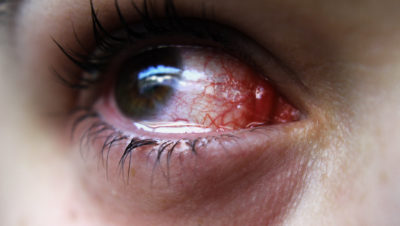Diabetic neuropathy is a type of nerve damage that can occur in individuals with diabetes, particularly if their blood sugar levels are not well-controlled over a long period of time. It can cause a range of symptoms, including numbness, tingling, pain, and muscle weakness, often starting in the feet and legs and potentially progressing to other parts of the body. Treatment for diabetic neuropathy aims to alleviate symptoms, slow the progression of nerve damage, and manage the underlying diabetes.
Treatment Options
Here are some common treatment options for diabetic neuropathy:
1. Blood Sugar Control:
- Medications: Your healthcare provider may adjust your diabetes medications or prescribe insulin to help control blood sugar levels.
- Lifestyle changes: Eating a balanced diet, exercising regularly, and monitoring blood sugar levels are essential components of diabetes management.
2. Pain Management:
- Over-the-counter pain relievers like acetaminophen or nonsteroidal anti-inflammatory drugs (NSAIDs).
- Prescription medications such as antidepressants (e.g., amitriptyline, duloxetine), anticonvulsants (e.g., gabapentin, pregabalin), or opioid medications (used cautiously due to their potential for addiction).
3. Physical Therapy:
Physical therapy can help improve muscle strength and coordination, reduce pain, and enhance overall mobility.
4. Topical Treatments:
Over-the-counter creams or patches containing capsaicin (derived from chilli peppers) may provide temporary relief from localised pain.
5. Transcutaneous Electrical Nerve Stimulation (TENS):
TENS therapy involves the use of a device that delivers electrical impulses to nerve endings, potentially providing pain relief.
6. Lifestyle Modifications:
- Proper foot care: Regular foot inspections and keeping feet clean and moisturise to prevent complications.
- Smoking cessation: Smoking can worsen neuropathy symptoms and increase the risk of complications.
- Alcohol moderation: Excessive alcohol consumption can exacerbate neuropathy symptoms.
7. Complementary and Alternative Therapies:
Some individuals find relief from neuropathy symptoms through techniques like acupuncture, massage therapy, and yoga. These may be used in conjunction with traditional treatments.
8. Treatment for Specific Symptoms:
Depending on the specific symptoms you experience, your healthcare provider may recommend additional treatments. For example, if you have urinary problems, they may suggest medications or exercises to address this issue.
9. Regular Monitoring:
It’s essential to maintain regular check-ups with your healthcare provider to monitor the progression of neuropathy and adjust your treatment plan as needed.
What are the Symptoms?
-
Numbness and Tingling
-
Burning or Shooting Pain
-
Muscle Weakness
-
Loss of Sensation
-
Hypersensitivity
-
Balance Problems
-
Digestive Problems
-
Urinary Issues
-
Sexual Dysfunction
-
Changes in Blood Pressure
-
Foot and Skin Problems
It’s important to note that diabetic neuropathy can progress gradually, and some individuals may have mild symptoms initially that worsen over time. Early detection and management are essential to prevent complications and improve the quality of life for individuals with diabetes and neuropathy. If you have diabetes and are experiencing any of these symptoms, it’s important to seek medical attention and work with your healthcare provider to develop an appropriate treatment plan.
What are the Causes?
Diabetic neuropathy is primarily caused by prolonged and poorly controlled diabetes. High blood sugar levels (hyperglycemia) over an extended period of time can lead to damage to the nerves throughout the body. The exact mechanisms by which high blood sugar damages nerves are not fully understood, but several factors are believed to contribute to diabetic neuropathy:
-
High Blood Sugar Levels:
Chronically elevated blood sugar levels can cause chemical changes in nerve fibres. These changes may impair the ability of nerves to transmit signals, leading to nerve damage.
-
Advanced Glycation End Products (AGEs):
High blood sugar can lead to the formation of AGEs, which are harmful substances that can accumulate in nerve tissues and blood vessels. AGEs are thought to play a role in nerve damage.
-
Vascular Factors:
Diabetes can damage blood vessels that supply nutrients and oxygen to nerves. Poor blood flow can contribute to nerve injury.
-
Inflammation:
Chronic inflammation is associated with diabetes and may contribute to nerve damage.
-
Autoimmune Factors:
In some cases, the immune system may attack and damage nerve cells, leading to neuropathy.
-
Genetics:
Genetic factors may predispose some individuals to a higher risk of developing diabetic neuropathy.
-
Lifestyle Factors:
Lifestyle factors such as smoking and excessive alcohol consumption can exacerbate the risk and severity of diabetic neuropathy
It’s important to note that the risk of developing diabetic neuropathy is closely tied to the duration and severity of diabetes. The longer someone has diabetes and the less well their blood sugar is controlled, the greater the risk of developing neuropathy.
What are the Types of Diabetic Neuropathy?
There are different types of diabetic neuropathy, each affecting different types of nerves and causing specific symptoms. These types include:
-
Peripheral Neuropathy:
This is the most common form and affects the nerves in the extremities, particularly the feet and legs.
-
Autonomic Neuropathy:
This type affects the autonomic nervous system, which controls involuntary functions such as digestion, heart rate, and blood pressure.
-
Proximal Neuropathy:
Also known as diabetic amyotrophy, this type affects the thighs, hips, or buttocks and can lead to muscle weakness and pain.
-
Focal Neuropathy:
Focal neuropathy refers to the sudden and often severe weakness or pain in specific nerves or groups of nerves. It usually affects one side of the body and can occur in various parts.
Facing a Diabetic Neuropathy is challenging, but Dr. Agarwal’s Eye Hospitals is here to help. Our expert team can accurately diagnose and treat your condition. We prioritise your issues and offer cutting-edge treatments and support for your recovery. We also provide advice on preventing future ulcers. Contact us at 9594924026 | 080-48193411 for expert care and guidance to manage Diabetic Neuropathy. Your vision is our priority.









